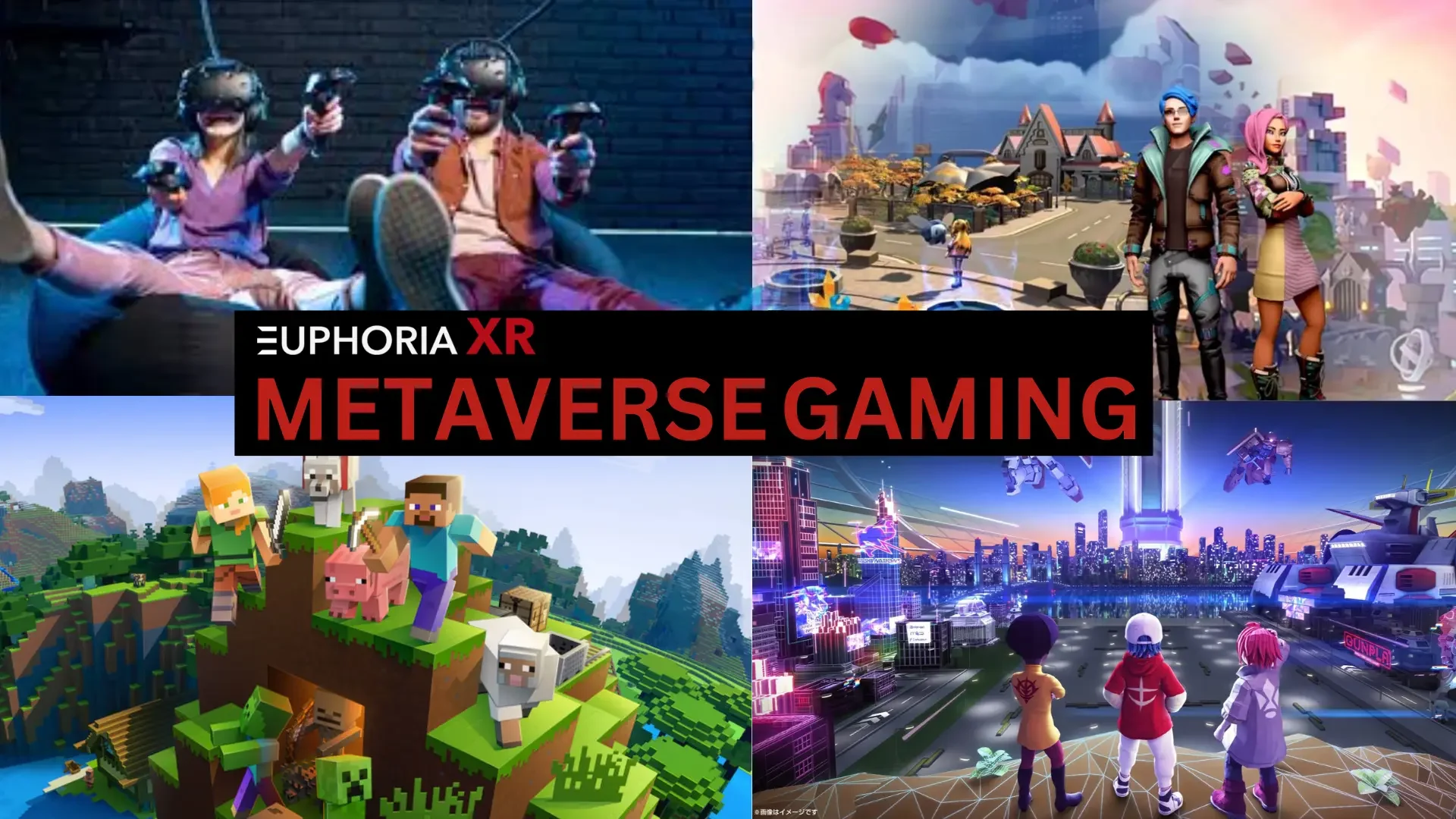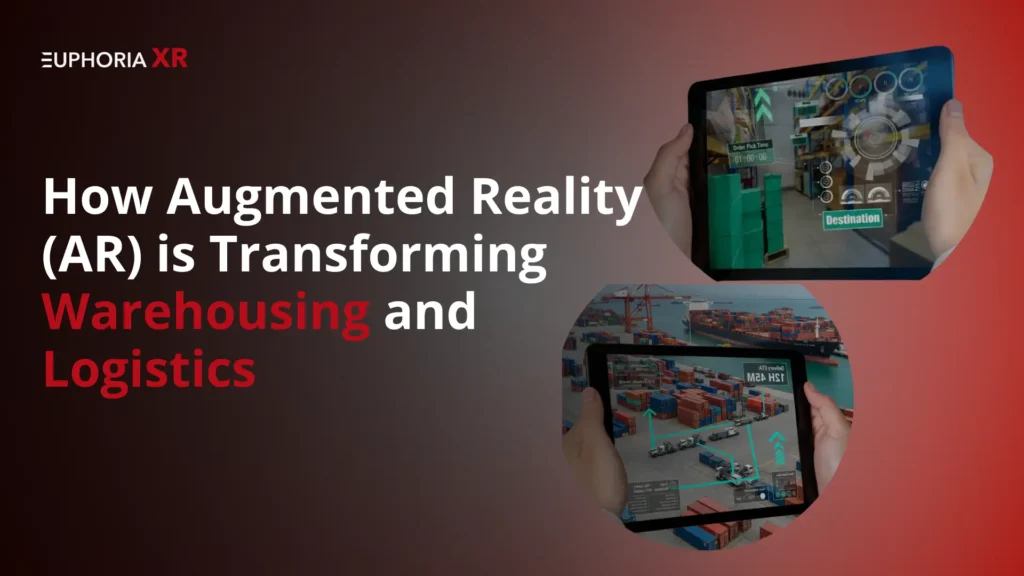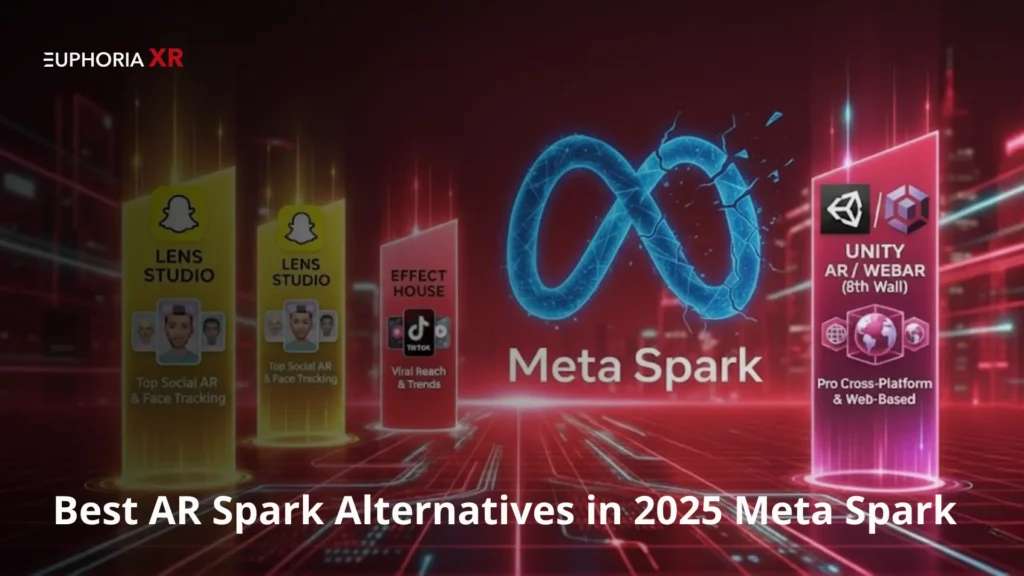The global market for metaverse gaming is projected to grow significantly, increasing from USD 36.81 billion in 2022 to USD 710.21 billion by 2027, with an annual growth rate of 38.2%.
The Metaverse is transforming the gaming industry by merging virtual reality (VR), augmented reality (AR), and other advanced technologies to deliver a more immersive gaming experience. This innovative approach allows players to enter lifelike virtual worlds, creating a more captivating gameplay environment.
The Metaverse in the Gaming industry has a huge impact. Metaverse gaming creates unique gaming experiences, offering an interconnected virtual space where players from around the globe can connect, collaborate, compete, and form communities. This expansive world facilitates broader social interaction, exceeding what is possible in conventional games.
Metaverse games encourage user-generated content, empowering players to design and customize their virtual assets—such as avatars, items, and environments—and even monetize their creations. This user-driven approach enriches the virtual world and provides new opportunities for creativity and income.
The metaverse also aims to eliminate barriers between gaming platforms and devices. Whether on gaming consoles, PCs, mobile devices, or VR headsets, players can access and enjoy a seamless, consistent experience across various platforms.
The future of metaverse gaming also introduces novel economic models through blockchain technology and cryptocurrencies. Players can own and trade virtual assets, creating real-world economic value and opening doors to entrepreneurship, virtual businesses, and virtual employment.
Let’s discuss more about metaverse gaming!
Experience the Future of Metaverse Gaming With Us! As a leading Unity 3D development company, we specialize in metaverse game creation. Let us help bring your gaming visions to life with our expert metaverse game development services.
What is Metaverse Gaming? Or Gaming In Metaverse
So, what does the metaverse mean for gaming?
In the metaverse, gaming allows users to participate in dynamic and competitive environments, driving rapid growth as more players and gaming companies become involved. Many gamers and experts see the metaverse as the future of gaming, providing an unmatched level of immersion and a 360-degree view of thrilling experiences.
Metaverse Gaming or Gaming in the Metaverse is the term used to describe playing video games in the metaverse, which is a shared virtual space created by the fusion of enhanced virtual reality and persistently physically-based virtual worlds. Here’s a rundown of what this means:
Immersive worlds:
Metaverse gaming involves playing in vast, immersive virtual worlds where players can interact with one another and the surroundings. Their worlds can be complex, detailed, and persistent, meaning they continue to grow and evolve even if you’re no longer playing.
Interactivity and Social Integration:
Games have powerful social elements in a metaverse world. The players can cooperate and compete in a virtual world, typically with avatars as their representations. Social interaction can enrich the gaming experience, making it more fun.
Cross-Platforms and Cross-Game Play:
Metaverse games can let players utilize their avatars and assets in different gaming and digital environments. This means that items or accomplishments from one game could be used in another, making seamless, interactive gaming.
Virtual economies and NFTs:
Metaverses typically contain virtual economies where players can purchase and sell virtual assets and goods. Non-fungible Tokens (NFTs) have become a typical feature that lets players possess unique digital objects or assets that can be verified as belonging to and worth.
Persistent Games:
In contrast to traditional games, which can restart after every game, the metaverse typically includes persistent environments that develop with time. The game’s atmosphere may have a lasting impact and can affect the game even if players are not online.
Enhanced technologies:
Metaverse gaming uses advanced technologies like Augmented Reality (AR), virtual reality (VR), and blockchain to deliver immersive and interactive experiences.
Market Overview of Metaverse Gaming
In the coming year, nearly $20 billion is expected to be invested in AR and VR technology specifically for gaming, accounting for 62% of all AR/VR investments. Investments in other sectors are anticipated to be lower, with $4 billion each allocated to training and industrial maintenance and $3 billion to retail by 2024
According to Gartner, 25% of people worldwide spend at least an hour daily online for work, shopping, social networking, and entertainment. By then, at least 30% of organizations are expected to offer products and services related to the metaverse.
Given these trends, the metaverse will likely become a major emerging concept within the gaming industry.
Popular Companies Involved in Metaverse Gaming
Metaverse is doing wonders in the gaming industry, with major companies making big investments in developing metaverse platforms and applications. These companies are leading the future of metaverse gaming, creating many career opportunities for those interested in this field.
Decentraland
Decentraland is a decentralized, blockchain-based platform that stands out in metaverse gaming. Launched in February 2020, it’s recognized as one of the first blockchain-powered digital worlds. The platform offers a range of possibilities, including VR and 3D design, game design, and cryptocurrency integration. Decentraland is a key player in the metaverse gaming industry, providing opportunities for those interested in metaverse game development.
Sandbox
Sandbox, built on the Ethereum blockchain, is a metaverse platform where users can create, buy, and sell virtual real estate and earn digital assets. The platform encourages the development of play-to-earn games and offers various career paths, from marketing to technical roles like 3D game programming and blockchain development. Sandbox is one of the best-known metaverse games and plays a significant role in the future of metaverse gaming.
Epic Games
Epic Games, known for creating Fortnite, is heavily invested in metaverse gaming. The company plays a major role in the metaverse gaming industry, contributing to the design of titles like Rocket League, Fall Guys, and Fortnite. Epic’s work also includes developing infrastructure like the Unreal Engine, making it central to gaming in the metaverse space.
Meta (Facebook)
Meta, previously known as Facebook, has rebranded to reflect its commitment to the metaverse. The company has invested heavily in developing metaverse assets and infrastructure. Meta is focused on creating immersive virtual worlds like Horizon Worlds, where users can play and socialize, placing the company at the forefront of the future of metaverse gaming.
Microsoft
Microsoft is another major player in metaverse gaming, developing multiple applications to integrate with its Mesh platform. The company has secured significant investments in metaverse game development and offers various job opportunities, including game design, software engineering, and product development.
Euphoria XR
Euphoria XR specializes in Metaverse Development Company, offering top-notch services in 3D design, Unity development, 360 video production, VR development, and AR development. Our expertise ensures that your metaverse projects meet the highest standards, utilizing the latest technologies to create engaging and advanced gaming experiences.
Roblox
Roblox has established its metaverse, attracting millions of users daily. Known for being one of the first virtual worlds accessible without a VR headset, Roblox continues to innovate in the metaverse gaming space. The company focuses on creating accessible metaverse gaming options, making it a prominent figure in the industry.
Niantic
Niantic, the company behind Pokémon Go, is advancing metaverse gaming by developing real-world experiences that merge virtual and physical worlds. The company has raised significant funds to expand these efforts, positioning itself as a leader in AR-based metaverse gaming.
Examples of Metaverse Gaming
The metaverse in the gaming industry has already seen several innovative games emerge, showcasing the future of metaverse gaming. Here are some examples:
Alien Worlds
Alien Worlds is a play-to-earn game featuring a six-world metaverse. Players can earn “trillium” tokens through land ownership, mining, or using the Binance Smart Chain. This game allows players to accumulate and trade in-game items, making it a pioneer in metaverse gaming.
Axie Infinity
Pokémon inspires Axie Infinity, which allows players to collect, trade, breed, and raise fantasy creatures called Axies. As one of the most popular NFT games, Axie Infinity plays a significant role in the metaverse gaming ecosystem, showcasing the potential of blockchain technology in game development.
Chain of Alliance
Chain of Alliance is a role-playing strategy game where players customize monsters and create battle teams. This game combines fantasy and science fiction, offering unique NFT avatars and in-game items that enhance the gaming experience.
Decentraland
Decentraland allows players to own digital real estate, play games, and engage in a community-driven virtual world. The platform’s use of MANA cryptocurrency offers numerous ways to earn and engage, making it a standout metaverse game.
Farmers World
Farmers World is a metaverse game where players can farm, mine, and cultivate resources like food, wood, and gold. The game’s marketplace allows for the exchange of these items, and players can acquire NFT land plots to explore and extract resources.
Krystopia
Krystopia is a puzzle-solving adventure game set in a mystical land filled with treasures and secrets. Built on the Chromia blockchain, the game rewards players for conquests, offering a unique experience in the metaverse gaming world.
Sandbox
Sandbox offers an open platform where players can own land, create games, and monetize their creations. Built on the Ethereum blockchain, Sandbox allows 3D modeling and game development without coding, making it a key player in the metaverse gaming industry.
Pokémon Go
Pokémon Go is one of the most successful AR games and has a huge influence on other metaverse games like Axie Infinity. Integrating NFT Pokémon cards bridges the gap between physical and digital assets, making Pokémon Go a foundational title in the metaverse gaming world.
The Future of Metaverse in Gaming
The metaverse concept in gaming is set to reshape how we perceive and interact with digital worlds. This virtual universe, where physical and digital realities meet, is not just a future vision; it’s a rapidly developing reality. The changes for the gaming industry will be significant, transforming gaming into a more immersive, social, and economically vital experience.
1. Immersive and Realistic Experiences
The evolution of gaming within the metaverse will lead to an unmatched level of immersion. Imagine stepping into a game where the environment is so realistic that you are genuinely inside the virtual world. Advances in virtual reality (VR) and augmented reality (AR) technologies will make this possible, allowing players to interact with the game world in lifelike ways.
For example, VR headsets will become more advanced, offering higher resolution and better field of view. Haptic feedback devices, which provide physical sensations in response to in-game actions, will further enhance this sense of immersion.
2. Interconnected Virtual Worlds
The metaverse promises to create a connected digital universe that links different games and virtual worlds. Unlike today’s games, which exist separately, the metaverse allows players to move freely between virtual environments, carrying their identity assets and progressing.
For example, a player might start their journey in a medieval fantasy game, travel to a futuristic sci-fi world, and finally meet friends in a virtual concert without leaving the metaverse. This interconnectedness will enable a richer gaming experience, where the lines between different genres and games are blurred.
3. Social and Collaborative Gaming
The metaverse will elevate gaming into a more social experience. While multiplayer games have long been popular, the metaverse will take social interaction to a new level. In the metaverse, players won’t just play together; they will live, work, and socialize in a shared digital space.
Virtual communities will form within the metaverse, with players creating groups that span multiple games and platforms. These communities will host events, organize activities, and establish virtual economies.
4. Play-to-Earn Models
One of the most revolutionary aspects of the metaverse is the emergence of play-to-earn models, where players can earn real-world value through their in-game activities. This model is already gaining traction in blockchain-based games, where players can own, trade, and sell digital assets like NFTs.
This model will become more common, with players earning income by participating in the metaverse. For example, a player might earn virtual currency by completing quests or creating content within the metaverse, which can then be converted into real-world money.
5. Cross-platform and Cross-Device Compatibility
The metaverse will not be limited to a single platform or device. Instead, it will be accessible across various devices, including VR headsets, PCs, consoles, and smartphones. This cross-platform compatibility will ensure that players can access the metaverse wherever they are, making gaming a more seamless experience.
For instance, a player might start a game on their console at home, continue on their smartphone during their commute, and finish on their VR headset. This flexibility will make the metaverse an integral part of everyday life.
Explore Metaverse Gaming with Euphoria XR’s Experts
Gaming has always been a popular pastime, captivating people of all ages for generations.
The metaverse is taking gaming to new heights, allowing players to immerse themselves fully in virtual worlds. Instead of just watching a game on a screen, gamers can interact with the environment and experience the game from within.
But the metaverse goes beyond this. With Web 3.0 gaming and blockchain technologies, players can control and own their data, enhancing their gaming experience and security.
For businesses, the metaverse presents exciting opportunities. It offers a chance to reach a larger audience and engage with customers on a deeper level than ever before. This can help brands strengthen their market presence and stand out.
If you’re a business interested in exploring these opportunities, Euphoria XR is here to assist. We are leaders in metaverse technologies and specialize in metaverse game development, ready to help you make the most of this innovative space.














